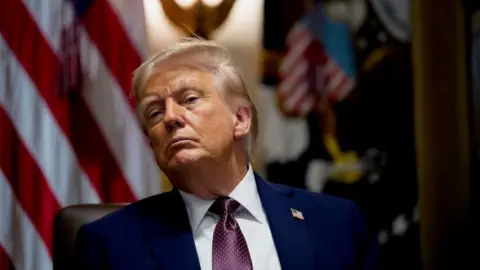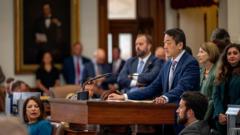WASHINGTON — Congress is at an impasse regarding the extension of tax credits that have rendered health insurance more affordable for millions since the onset of the COVID-19 pandemic. While there’s bipartisan acknowledgment of the importance of these subsidies, legislators are deeply divided on how to proceed.
Democrats are on the offensive, threatening to vote against a government funding bill unless these health care tax credits, established in 2021 and due to expire at year-end, are extended. This subsidy is crucial for low- to middle-income individuals purchasing insurance under the Affordable Care Act.
Interestingly, some Republicans — traditionally opposed to aspects of the Affordable Care Act — are now open to discussions about preserving these credits, realizing their constituents might face substantial cost increases should the subsidies lapse.
However, a significant rift remains between party lines. Many Republicans oppose the current structure of the tax credits and propose re-evaluating the parameters before any potential extension, raising concerns that a full-blown debate on health care could prolong the negotiations.
In light of the looming expiration, Senate Democratic Leader Chuck Schumer noted that millions of Americans could start receiving notices of drastic premium increases unless Congress acts swiftly. The implications are particularly urgent with open enrollment for the ACA starting on November 1.
Current estimates suggest that approximately 24 million people are enrolled in ACA plans significantly due to these enhanced subsidies, and without them, insurers express concerns over unsustainable rate hikes. In some regions, proposed premium increases could reach as high as 50%.
This tension extends to broader government funding discussions, with Democrats insisting that the preservation of health care subsidies be included in any stopgap measure to avert an impending government shutdown. Republican leaders, however, are approaching with caution, looking for a balanced approach and awaiting guidance from party members on the best way forward.
As deadlines approach and premiums threaten to rise, the urgency for Congress to solidify a stance on health care subsidies intensifies, with potential implications that could resonate deeply with voters ahead of upcoming elections.




















